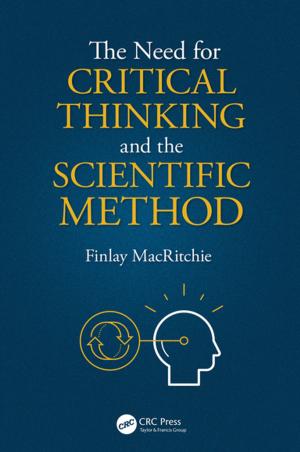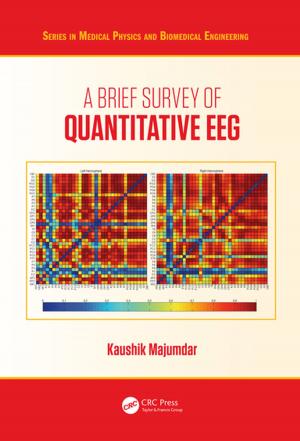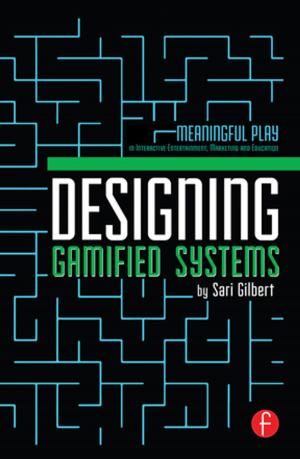Handbook of Approximation Algorithms and Metaheuristics
Contemporary and Emerging Applications, Volume 2
Nonfiction, Computers, Advanced Computing, Engineering, Computer Engineering, Entertainment & Games, Game Programming - Graphics, Science & Nature, Mathematics| Author: | ISBN: | 9781351235402 | |
| Publisher: | CRC Press | Publication: | May 15, 2018 |
| Imprint: | Chapman and Hall/CRC | Language: | English |
| Author: | |
| ISBN: | 9781351235402 |
| Publisher: | CRC Press |
| Publication: | May 15, 2018 |
| Imprint: | Chapman and Hall/CRC |
| Language: | English |
Handbook of Approximation Algorithms and Metaheuristics, Second Edition reflects the tremendous growth in the field, over the past two decades. Through contributions from leading experts, this handbook provides a comprehensive introduction to the underlying theory and methodologies, as well as the various applications of approximation algorithms and metaheuristics.
Volume 1 of this two-volume set deals primarily with methodologies and traditional applications. It includes restriction, relaxation, local ratio, approximation schemes, randomization, tabu search, evolutionary computation, local search, neural networks, and other metaheuristics. It also explores multi-objective optimization, reoptimization, sensitivity analysis, and stability. Traditional applications covered include: bin packing, multi-dimensional packing, Steiner trees, traveling salesperson, scheduling, and related problems.
Volume 2 focuses on the contemporary and emerging applications of methodologies to problems in combinatorial optimization, computational geometry and graphs problems, as well as in large-scale and emerging application areas. It includes approximation algorithms and heuristics for clustering, networks (sensor and wireless), communication, bioinformatics search, streams, virtual communities, and more.
About the Editor
Teofilo F. Gonzalez is a professor emeritus of computer science at the University of California, Santa Barbara. He completed his Ph.D. in 1975 from the University of Minnesota. He taught at the University of Oklahoma, the Pennsylvania State University, and the University of Texas at Dallas, before joining the UCSB computer science faculty in 1984. He spent sabbatical leaves at the Monterrey Institute of Technology and Higher Education and Utrecht University. He is known for his highly cited pioneering research in the hardness of approximation; for his sublinear and best possible approximation algorithm for k-tMM clustering; for introducing the open-shop scheduling problem as well as algorithms for its solution that have found applications in numerous research areas; as well as for his research on problems in the areas of job scheduling, graph algorithms, computational geometry, message communication, wire routing, etc.
Handbook of Approximation Algorithms and Metaheuristics, Second Edition reflects the tremendous growth in the field, over the past two decades. Through contributions from leading experts, this handbook provides a comprehensive introduction to the underlying theory and methodologies, as well as the various applications of approximation algorithms and metaheuristics.
Volume 1 of this two-volume set deals primarily with methodologies and traditional applications. It includes restriction, relaxation, local ratio, approximation schemes, randomization, tabu search, evolutionary computation, local search, neural networks, and other metaheuristics. It also explores multi-objective optimization, reoptimization, sensitivity analysis, and stability. Traditional applications covered include: bin packing, multi-dimensional packing, Steiner trees, traveling salesperson, scheduling, and related problems.
Volume 2 focuses on the contemporary and emerging applications of methodologies to problems in combinatorial optimization, computational geometry and graphs problems, as well as in large-scale and emerging application areas. It includes approximation algorithms and heuristics for clustering, networks (sensor and wireless), communication, bioinformatics search, streams, virtual communities, and more.
About the Editor
Teofilo F. Gonzalez is a professor emeritus of computer science at the University of California, Santa Barbara. He completed his Ph.D. in 1975 from the University of Minnesota. He taught at the University of Oklahoma, the Pennsylvania State University, and the University of Texas at Dallas, before joining the UCSB computer science faculty in 1984. He spent sabbatical leaves at the Monterrey Institute of Technology and Higher Education and Utrecht University. He is known for his highly cited pioneering research in the hardness of approximation; for his sublinear and best possible approximation algorithm for k-tMM clustering; for introducing the open-shop scheduling problem as well as algorithms for its solution that have found applications in numerous research areas; as well as for his research on problems in the areas of job scheduling, graph algorithms, computational geometry, message communication, wire routing, etc.















